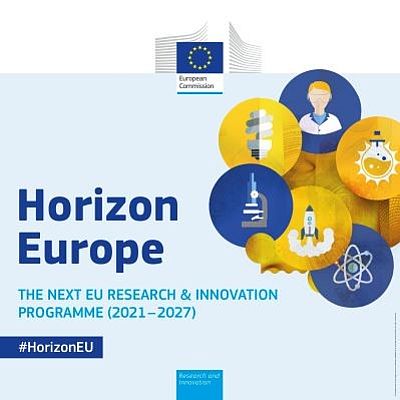Horizon Europe success for Irish-based health researchers
Health researchers based in Ireland have been successful in securing over €36 million from 2022 and 2023 funding calls under Horizon Europe, the EU Framework Programme for Research and Innovation.
5 min read - 18 Dec 2023

Representing 1.77% of the entire Horizon budget, this funding is spread across 45 projects involving 43 Irish institutions. The planned research will address a range of vitally important issues across health and social care: from tackling challenging diseases and health conditions; to exploring how new technologies can improve diagnosis and treatment; to developing holistic approaches for healthier environments.
The Health Research Board (HRB) provided support to many of the successful researchers throughout the application process, in its role as National Contact Point (NCP) for Horizon Europe Health in Ireland. The funding was split across higher education institutions, industry and other organisations such as hospitals or societal organisations.
Commenting on the success, Dr Caitriona Creely, Head of International Cooperation, Evaluation and Targeted Programmes at the HRB, said: “We are delighted to see that Ireland continues to perform strongly in securing funding through the highly competitive Horizon Europe programme, as promoting the value of European and international research collaboration is a core priority for the HRB.”
Dr Irene Castellano, NCP for Horizon Europe Health at the HRB, notes: “I am pleased to have supported Irish-based researchers in accessing European funding. The research funded will address some of the most pressing health and social care challenges we face, and has the potential to make a real difference to people’s health, patient care and health policy, both in Ireland and internationally.”
Irish-based researchers are leading seven of the funded projects as coordinators, in the following key areas:
Health-promoting environment research
GO GREEN NEXT
Coordinator: National University of Ireland Maynooth
Other Irish partners: University College Cork (UCC)and Cork City Council
Title: GoGreenNext Promoting Future Health in Cites
Summary: As the impacts of climate change continue to rise, cities are highly vulnerable to environmental degradation and the related health risks. GoGreenNext will address the biodiversity-climate-planetary health nexus, supporting positive policy and city/region pilot outcomes in four biogeographic regions across Europe.
PROSPERH
Coordinator: University College Cork (UCC)
Other Irish partners: National Suicide Research Foundation and Pintail Ltd
Title: Promoting Positive Mental and Physical Health at Work in a Changing Environment: A Multi-level Approach
Summary: PROSPERH will develop and validate an intervention to ensure workplaces are health-promoting environments, focusing on individual and organisational health promotion, online self-monitoring and self-management, and clinical care or coaching referral pathways.
Research tackling diseases and reducing disease burden
Coordinator: University of Galway
Title: Novel advanced and repurposed therapeutics for vision restoration in a group of severe rare ocular surface diseases: from validation to first clinical investigations
Summary: RESTORE VISION has identified seven rare eye diseases where current treatment options are inadequate – and aims to repurpose six existing drugs and develop three new compounds to tackle these conditions, with the potential to restore the cell physiology, immune, avascular, neural and signalling environment in the cornea.
Coordinator: University College Cork
Title: Epigenetic-Genetic-Mental Health Cascade based personalised prevention of non-communicable disease in adolescents diagnosed with Autism
Summary: ETHEREAL aims to develop a personalised solution to empower autistic adolescents to take preventive actions to protect their mental health while accessing community and clinical support at their point-of-need.
In-Touch
Coordinator: University College Cork (UCC)
Other Irish partners: Crowdhelix Limited
Title: In-Touch: Implementation of a person-centered palliative care iNtervention To imprOve comfort, qUality of life and social engagement of people with advanced dementia in Care Homes
Summary: This project aims to compare standard care of people with advanced dementia with an ethically sound solution which provides both care ‘in-the moment’ and planning for future needs, to ensure that care home residents with dementia can access optimal palliative care.
Access to innovative, sustainable and high-quality healthcare
KitNewCare
Coordinator: Trinity College Dublin
Title: Developing a framework/model to environmentally sustainable and climate neutral health and care systems using the kidney care pathway
Summary: KitNewCare aims to enable decision makers and healthcare providers to reduce pollution, carbon emissions and waste by co-developing and piloting sustainable tools, innovative solutions, training, guidelines and recommendations as a proof of concept in the kidney care pathway.
New tools, technologies and digital solutions for a healthy society
Coordinator: University of Galway
Other Irish partners: Dundalk Institute of Technology, Mater University Hospital and Children’s Health Ireland.
Title: Reconstruction and Computational Modelling for Inherited Metabolic Diseases
Summary: The Recon4IMD project aims to accelerate diagnosis and personalise management of inherited metabolic diseases, in order to improve patient outcomes for these rare conditions.
The HRB itself has secured funding as a partner in three co-funded partnerships. In 2021, it secured funding under the ‘Fostering a European Research Area for Health Research’ call (ERA4Health) and in 2022 it secured two others: ‘European Partnership on Transforming Health and Care System’ (THCS) and ‘European Partnership for Personalised Medicine’ (PerMed). These co-funded partnerships will launch future calls, partially funded by the Commission and partially by the HRB.
For more details of the projects that secured funding in the first funding round of Horizon Europe (2022 and 2023), please click to download the overview table.
For any questions about Horizon Europe funding opportunities, please contact HRB NCP Dr Irene Castellano.
5 min read - 18 Dec 2023



